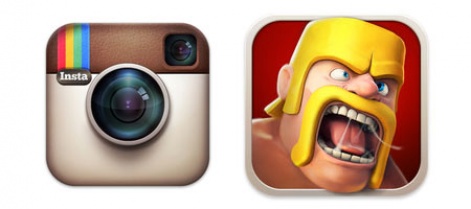He's now working for Danke Games, a gaming start-up based in the heart of the Black Forest in Germany.
I've had cause to think a lot about the difference between games and apps lately. And I think I may have painfully stubbed my toe on a maxim in the process.
All products, without exceptions, are defined either by utility value or entertainment value.
Now before you start going on about how there's inevitable cross-over between the two, just stop. I don't care how much fun your Volkswagen is to drive, you bought it because it was spacious and economical.
Ditto that phone/tablet/laptop you are reading this article on. The UI may make you purr with delight, but it's the SSD, HD web cam and DDR3 RAM that convinced you to part with your cash.
Therein lies the perennial conundrum for the games developer. People part with cash much more readily for things with obvious utility value, because utility is much easier to quantify than entertainment value.
Acquiring for value, not cash...
On an abstract level, this is why companies such as Yahoo or Facebook can confidently spend billions on services like Tumblr or Instagram, while acquisitions in that league almost never happen in the games industry,
It's reductive to say that because Supercell, King or Rovio's yearly revenue dwarfs that of any nascent social media superstar app (included the aforementioned), that they should be more attractive acquisitions for larger companies.

Why/Is one worth more than the other?
There is wisdom, however, in knowing that Tumblr's long-term utility value for customers is easier to quantify and project than Clash of Clans' long-term entertainment value.
So from this can we conclude that utility value is independent from a product's ability to generate revenue?
Or does this mean entertainment products can be valued in dollars and cents, with those making bank being quantifiably more entertaining than those that don't? Are all non-gaming apps inherently less entertaining than games?
The answer, thankfully, to all of these questions is no. It's far more complex than that, which shall be my excuse for not addressing the argument here.
Pick the right battle
What I will address is that when a small group of people are at the business end of bringing successful products to market, it's much, much easier to green light an app that obviously serves a need than it is to plunge into the development of a product whose sole means of hooking and retaining customers is by entertaining them.
Gamers (the kind we use air quotations to denote) are not fond of change.
They regard new technologies, business models and delivery methods with about as much trust as members of the service profession granted advancements like electricity and the telephone when they made their way into the aristocratic houses of the early 19th century.
The utility value of these products was clear, but the price of that utility may have been the dilution of what was considered by members of the service profession as a proud way of life.

What's the value of this box?
Similarly, there is an underlying feeling that anything which serves to distract from the craft of using interactive pixels to make people smile is something to be resisted.
In other words, gamers tend to exclusively define games on entertainment value, irrespective of any clever features that add utility value.
(Not that I necessarily agree with the current of opinion on this, but perhaps Microsoft ought to bear entertainment value more in mind than utility value when launching consoles.)
They gonna get medieval on yo ass
Let's take another approach...
Who'd be a jester? His most recent one-liner about the scurrilous chamber maid and the bawdy stable hand might sound fit-inducing when he rehearses it alone or among a close-knit group of fellow entertainers, but when it goes down like a marble kite in court, an offer to clean the King's shoes will probably do little to avoid a beheading.
Meanwhile the King's butler, who is looking to run the castle in new and more efficient ways, can test and prove out his theories with comparative ease (and probably with less risk of physical harm).
Oo-err - I think I just used a metaphor to accuse gamers of being luddites who want to decapitate developers - *runs.
Seriously though, one thing about my self-indulgent metaphor does stand.
Whether making games or apps, the balance of entertainment versus utility value is everything.
Because whichever way you look at it, the consumer is always the king and if they feel bored or poorly served, they may not cut off your head, but they will cut your product from their homescreen.
You can follow Fraser's industry commentary via Twitter.





















